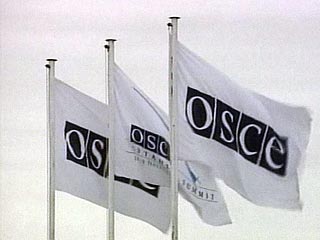OSCE criticizes mass media freedom in Belarus
The OSCE Representative on Freedom of the Media Dunja Mijatovich has come out in the support of Belarusian journalists.
On 30 July, Dunja Mijatovich has delivered her first report at the OSCE Permanent Council in Vienna. In the report on two dozens of the OSCE participating States, to which Mijatovich addressed with different questions concerning freedom of mass media, Belarus is mentioned as well, Radio Svaboda informs.
Dunja Mijatovich mentions her letter to Syarhei Martynau (Sergei Martynov), Minister of Foreign Affairs of Belarus, in which she expressed regret that intimidation of Natallya Radzina, Iryna Khalip, Svyatlana Kalinkina and Maryna Koktysh is taking place. In connection with the so-called “hunting case”, offices and homes of the journalists were raided and computer equipment and materials were confiscated.
In the same letter to the Minister she also raised concern about the criminal defamation investigation, under Article 188 of the Criminal Code, launched against Charter97. The defamation case was based on users’ comments posted on the Charter97 website in February 2009 in response to the article that it reprinted from Sovetskaya Byelorussiya, an official state newspaper.
Dunja Mijatovich has also I was disappointed that the implementing guidelines to the Presidential decree "On Measures to Improve the Use of the National Segment of the Internet" were adopted without a wide public discussion and assistance previously offered by her Office.
As noted by Dunja Mijatovich, experts of her Office commissioned a legal analysis of the implementing guidelines (by-laws) adopted by the Government of Belarus to complement Decree No. 60 "On measures to regulate the use of the national segment of the Internet". As experts say, among the areas of concern are:
• mandatory identification of users of devices enabling Internet access and of users of Internet services (this would make the confidentiality of journalists’ sources, as guaranteed by the media law, problematic, and therefore would seriously hamper investigative journalism);
• vague definitions of limitations and bans on dissemination of illegal content and the way of their implementation;
• vaguely defined liability of the provider of information on the Internet in cases of violation of an order from a respective body on rectifying established violations, or of the requirement to cease the provision of Internet services;
• the lack of an obligation for state bodies to inform the public on the Internet not only of their activities, but also of the information that was received or created as a result of such activities;
• the requirement to accompany information or media materials disseminated through the Internet with a hyperlink to the original sources or media, which published them earlier.
Dunja Mijatovich has informed about an open invitation to visit Belarus from Minister Syarhei Martynau, and that she accepted the invitation.
It should be noted that the OSCE Representative on Freedom of the Media Dunja Mijatovich knows very well how work of a journalist in the conditions of a dictatorship look like. She worked for oppositional mass media in Slobodan Milosevic times.


















